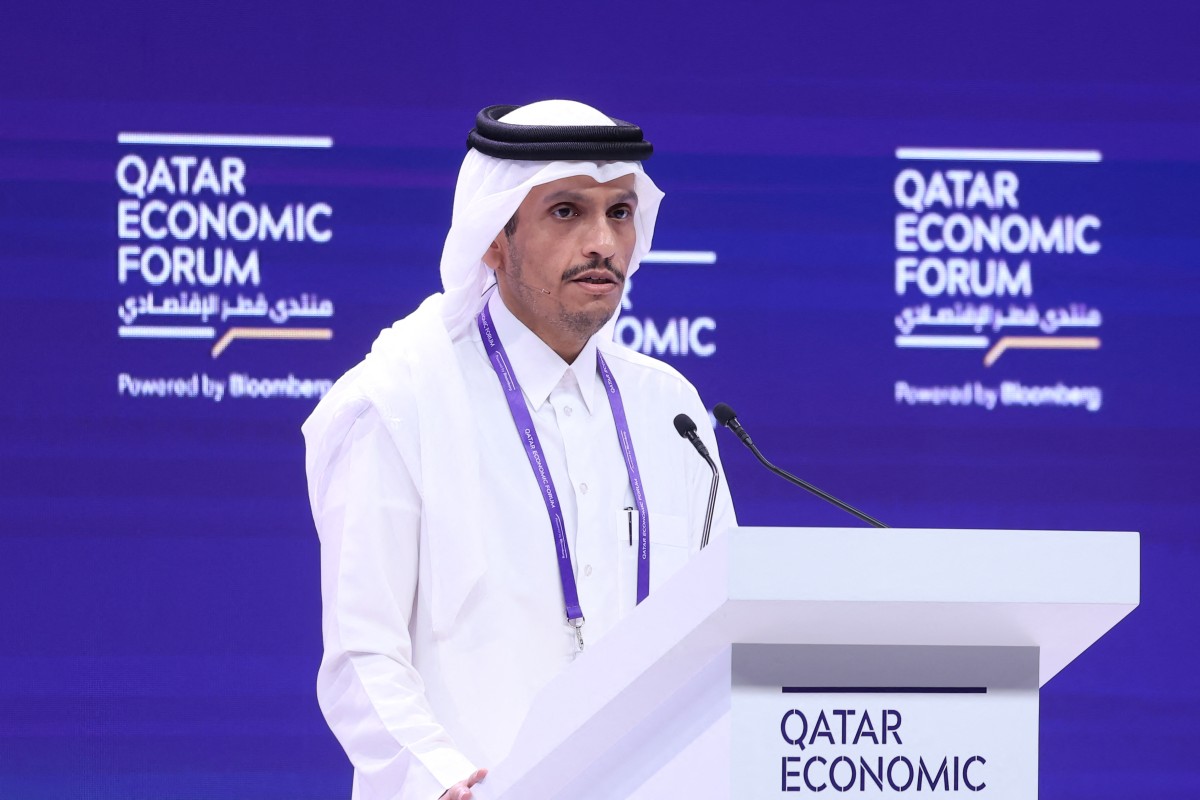Doha, Qatar — Israel’s military operation in Rafah has set truce negotiations with Hamas “backward”, mediator Qatar said on Tuesday, adding that talks have reached “almost a stalemate”.
“Especially in the past few weeks, we have seen some momentum building but unfortunately things didn’t move in the right direction and right now we are on a status of almost a stalemate,” Prime Minister Mohammed bin Abdulrahman Al-Thani told the Qatar Economic Forum.
“Of course, what happened with Rafah has set us backward.”
Qatar, which has hosted Hamas’s political office in Doha since 2012, has been engaged — along with Egypt and the United States — in months of behind-the-scenes mediation between Israel and the Palestinian militant group.
“There is no clarity how to stop the war from the Israeli side. I don’t think that they are considering this as an option… even when we are talking about the deal and leading to a potential ceasefire,” Sheikh Mohammed said.
Israeli politicians were indicating “by their statements that they will remain there, they will continue the war. And there is no clarity on what Gaza will look like after this”, he added.
Israel continued to fight Hamas in Rafah on Monday, despite US warnings against a full-scale assault on the south Gaza city that is crowded with displaced Palestinians.
A senior US official told AFP negotiations were “at a simmer, they are at a low boil”, but that conversations with the parties were continuing.
‘Hamas’s decision’
If talks were “to come to life again, it will be because of Hamas’s decision that they are willing to move closer to Israel’s proposal,” the official said, adding if the Palestinian group moved closer to the Israeli position there would be a “slowing down… of the activity in Rafah”.
Hamas needs to be “humble enough to have a serious conversation about negotiations, or not, because there’s a real concern that once the conflict is very active and kinetic again that then it will be tough for Hamas leadership to come back seriously to negotiations,” the official added.
At a separate news conference, Qatar’s foreign ministry spokesman said humanitarian aid had been unable to reach the people of Gaza since May 9, after Israel launched incursions into Rafah and closed the main aid crossings.
“Our brothers in the Gaza Strip have not received any aid since May 9, and this is an indication of the continued perpetuation of the humanitarian catastrophe in the Gaza Strip,” Majed al-Ansari said.
Asked whether Doha was reconsidering hosting Hamas’s political leaders in Doha, the Qatari prime minister said “as long as the war is ongoing and there is a need for the communication”, the ejection of Hamas was not being considered.
The senior US official said there was still “hope that Qatar, in the mediator role… can get something done”.
“However, I think it’s been made clear that if there is no deal to be made, there is no future option for success in these negotiations then the hosting of Hamas will have to change,” the official added.








